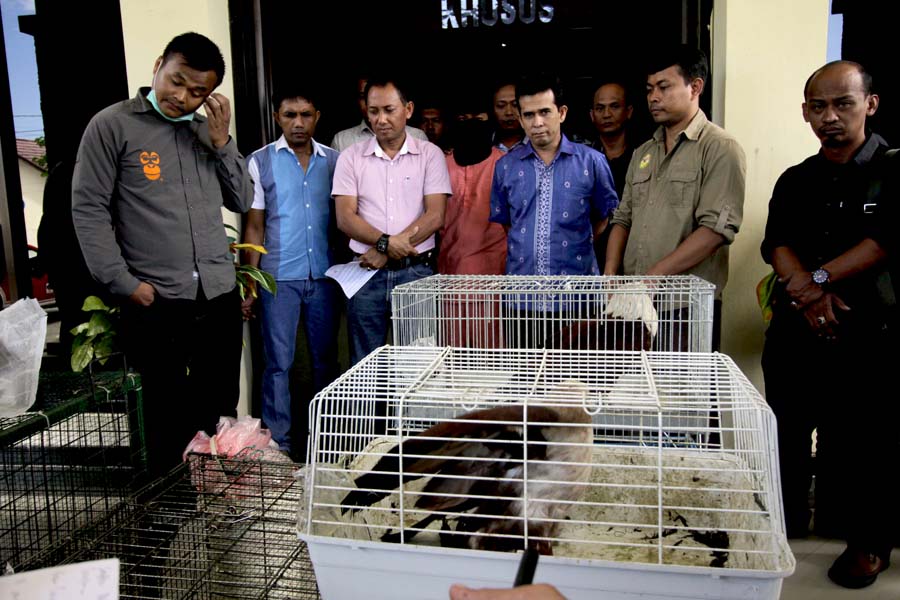- Suspect is a 29-year-old student at a local university
- Creatures’ mothers likely would have been killed to capture the babies
- Most trafficked Sumatran orangutans come from Aceh
A wildlife trafficker was arrested in a sting in Indonesia’s Aceh province after trying to sell three baby Sumatran orangutans through Facebook.
Authorities apprehended the 29-year-old man, a student at a local state-run university, after conservationists from the Centre for Orangutan Protection engaged him on the social media platform and learned where the critically endangered animals were being stored.
Besides the orangutans, the suspect was found with two red-backed sea eagles (Haliastur indus); a great argus (Argusianus argus), which is a type of pheasant; and a taxidermied Sunda clouded leopard (Neofelis diardi).

Trafficked Sumatran orangutans (Pongo abelii) usually come from Aceh, according to Daniek Hendarto, manager of the COP’s wildlife crime unit.
The creatures, he said, are usually bought locally for 1 million rupiah ($74) and then resold in Medan, the capital of neighboring North Sumatra province, for from 5 million to 10 million rupiah. “In Java they can fetch from 40 million to 100 million rupiah,” he added. “If they’re sold outside the country, like in Singapore or Malaysia, they can go for 400 million rupiah.”
Mirwazi, spokesman for the Aceh Police, said that the trafficker had confessed to selling two orangutans in July for 7.5 million rupiah each and that the man would be prosecuted under the 1990 Conservation Law.
According to the Facebook page of the Sumatran Orangutan Society, a U.K.-based organization that assisted in the sting, the orangutans’ mothers would have likely been killed to capture the babies, “a terrible reality of the illegal pet trade.”

Aceh’s orangutan population is waning due to hunting and habitat destruction, said Genman Hasibuan, head of the Aceh branch of the Natural Resources Conservation Agency (BKSDA), which estimates that 6,000 of the great apes remain in the wild.
“One orangutan habitat in Aceh is the Leuser Ecosystem,” he explained. “If the hunting continues and the forests continue to be destroyed, the number of orangutans will certainly decrease.”
Produced in English by Philip Jacobson.
Citation: Junaidi Hanafiah. “Berawal dari Facebook, Penjual Bayi Orangutan di Aceh Dibekuk.” Mongabay-Indonesia. 4 August 2015.